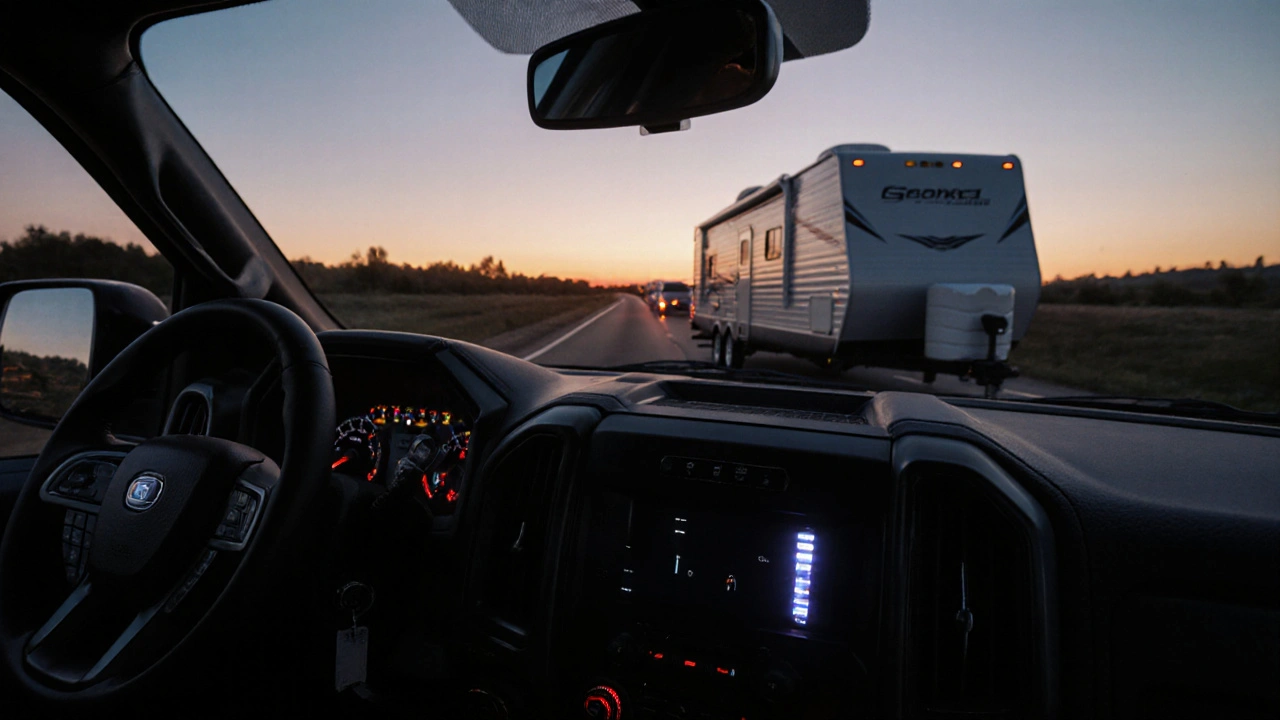When you tow a trailer, your vehicle’s brakes alone aren’t enough. That’s where a brake controller, a device that synchronizes trailer brakes with your vehicle’s braking system. Also known as a trailer brake controller, it ensures your trailer stops at the same time and with the same force as your truck or SUV—without jerking, skidding, or dragging. Without one, your trailer could push into the back of your vehicle during a stop, or worse, fail to stop at all. It’s not just convenience—it’s safety.
Brake controllers come in two main types: time-delayed and proportional. Time-delayed models apply trailer brakes after a set delay once you press your brake pedal. They’re simpler and cheaper, but they don’t adjust to how hard you’re braking. Proportional controllers, on the other hand, sense how quickly you’re slowing down and match the trailer’s braking force in real time. That means smoother stops, less wear on your tires and brakes, and better control on wet or hilly roads. Most modern trailers and experienced tow drivers prefer proportional controllers because they react like an extension of your own driving.
These devices connect to your vehicle’s brake light circuit and often mount under the dash. You’ll find them used in campers, boat trailers, utility trailers, and even horse trailers. If you’re towing anything over 1,500 pounds, most states require a brake controller by law. Even if it’s not required, skipping one puts you at risk. A sudden stop on the highway with an unbraked trailer can turn into a disaster in seconds.
Installation isn’t rocket science, but it’s not plug-and-play either. You need the right wiring harness for your vehicle, a solid ground connection, and proper calibration. Many people mess this up by guessing the sensitivity setting. Too low, and the trailer won’t help slow you down. Too high, and it locks up the wheels. The best setups are tested on empty parking lots before hitting the highway.
And it’s not just about the controller itself. The condition of your trailer’s brake drums, pads, and wiring matters just as much. A perfect controller won’t help if the trailer’s brakes are rusted or the wires are frayed. That’s why checking your trailer’s braking system before every long trip is non-negotiable. Look for signs of overheating, uneven wear, or squealing—those are red flags.
What you’ll find below are real-world guides on choosing, installing, and troubleshooting brake controllers. From budget-friendly models that work for light trailers to advanced systems that sync with smartphone apps, we cover what actually works. You’ll also see how brake controllers interact with other systems—like sway control, trailer wiring, and even your vehicle’s factory tow package. No fluff. Just what you need to know to stop safely, save money on repairs, and avoid the panic of a runaway trailer.
Posted by
Liana Harrow
14 Comments

Learn why brake controllers are essential for safe trailer towing with pickup trucks. Discover how they work, which type to choose, installation tips, and common mistakes to avoid.
read more